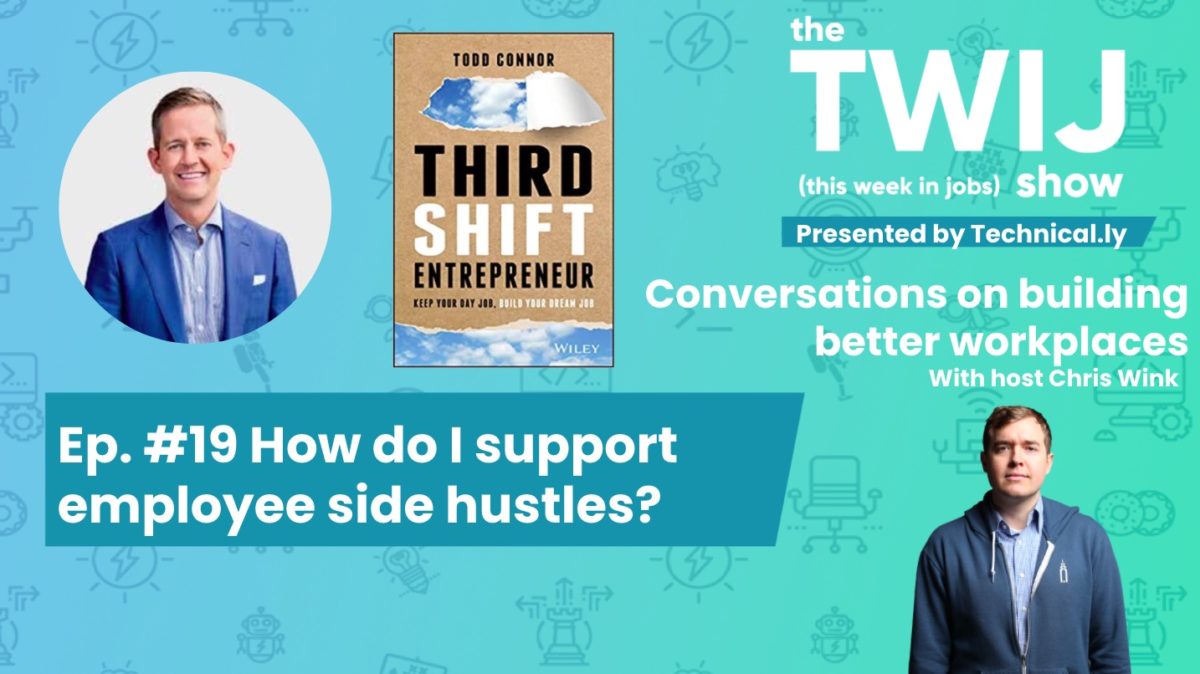Nearly half of Americans under 35 report having a side hustle.
Depending on your perspective, that’s either a remarkable feat of ingenuity, or a foreboding sign of the breakdown of the social contract. Beyond philosophy, the sheer range of extracurricular activities that earn money constitutes this divide.
If one of your employees drives for a ride-hailing company in the evenings, is that a sign of depressed wages or someone taking advantage of additional earning potential? If one of your employees sells jewelry they make on the weekends, is that a creative expression or a future venture? If one of your employees maintains rental properties or an ecommerce site or a new SaaS product, is that exciting or a threat?
The answers, of course, vary by the employee and the situation. If an employee and employer meet each other’s expectations, then anything done on one’s own time should be celebrated. An employer ought not be possessive, but can be careful about any blurry lines.
Getting this right isn’t just good HR policy — it’s also a new way of understanding how economic dynamism can return to the United States.
So says Todd Connor, the polished and connected entrepreneur behind veterans-focused accelerator Bunker Labs and author of the new book, “Third Shift Entrepreneur.”
The Third Shift in Connor’s book refers to his concept of the dedicated employee who leaves her day job for a second shift of home life before moving on to a third shift of side hustle. His is a positive image and opportunity. Knowing entrepreneurship has been declining in the United States for decades, Connor argues that encouraging more Americans to tinker with ideas outside of work is a way forward.
That’s all well and good but no doubt this has consequences for employers: How do you support employee side hustles?
I took this question to Connor for this week’s episode of The TWIJ Show, a weekly interview series focused on building better workplaces.
Show notes:
- Be flexible, but communicate: Be supportive of employee creativity, but it’s OK to be clear and upfront about expectations. Deadlines and agreed-upon output can’t be sacrificed for side hustles. But flexible days, evenings, time off and weekends are exclusively the time of these employees. Let them use that however they choose.
- Have a policy: The nearer an employee’s side hustle gets to your core business work the messier. You ought to be clear about where the line stands. Unfortunately this has resulted in a massive expansion in the use of over-broad non-compete clauses. Better still is open dialogue and company culture setting.
- Not everyone will stay at your workplace forever: Be real about expectations. Some of your teammates will stay with you for many years, and be thankful for that. Others may come to learn and build and move on. If some leave for their own ventures, consider that a success for your brand, the economy and those employees.
- Be clear about your own goals: Great workplaces support employees and want them to thrive beyond their time with your workplace. That means setting them up for success and happiness, however that looks.







